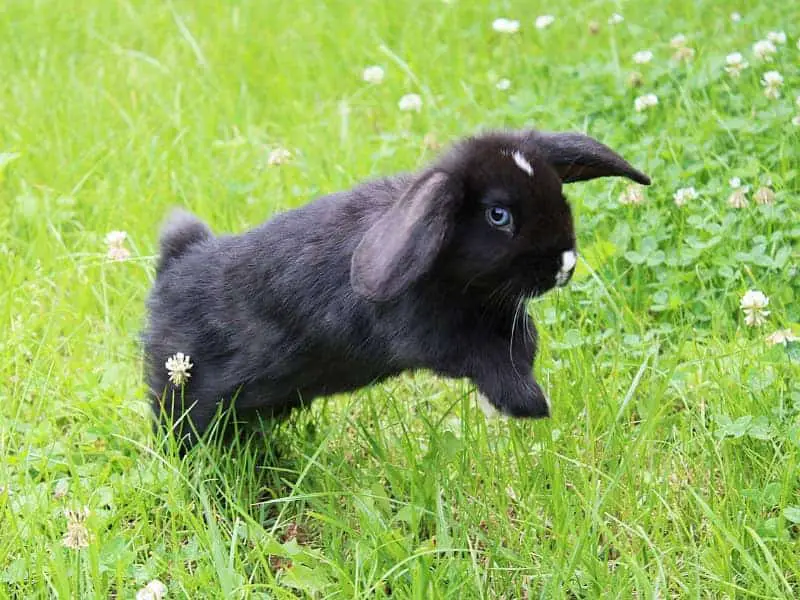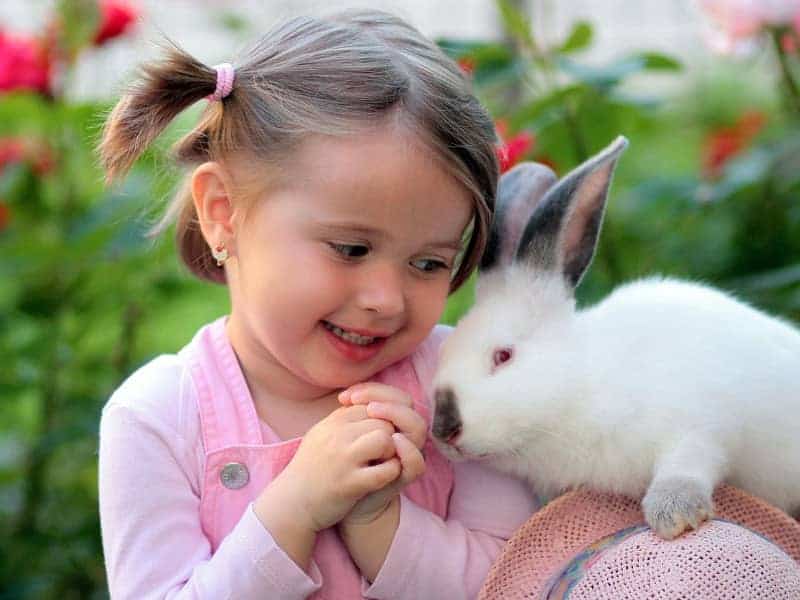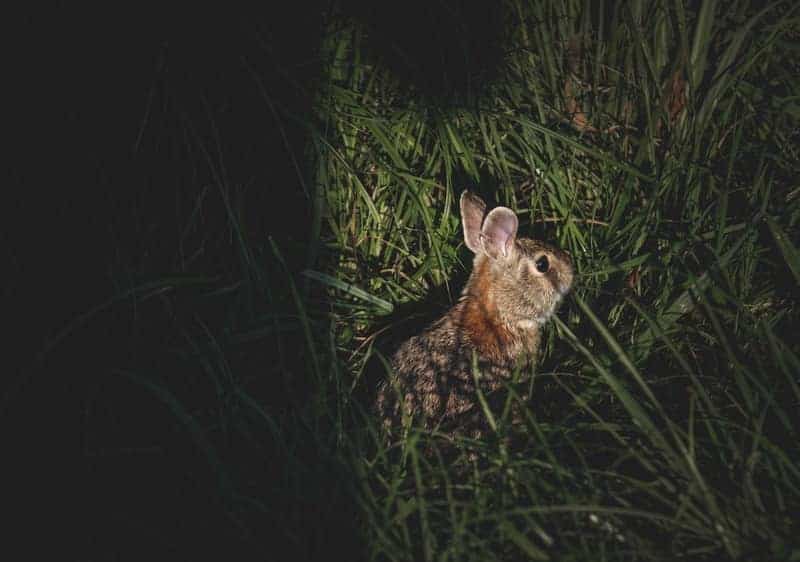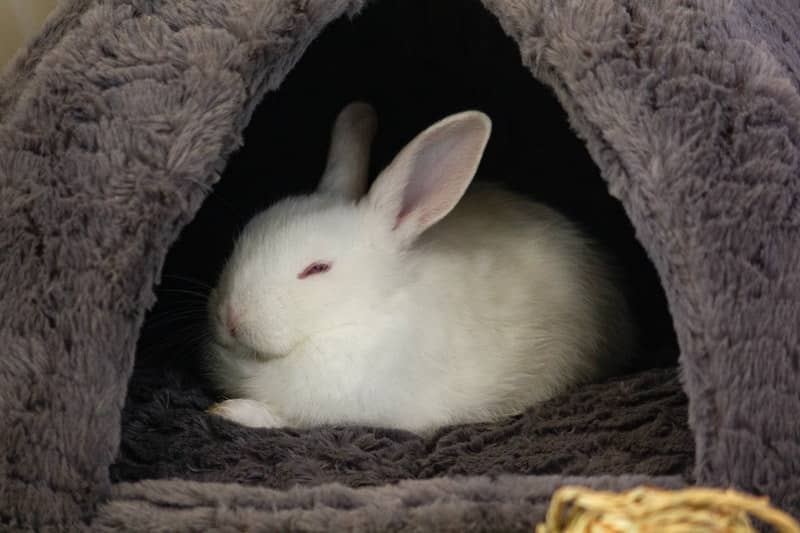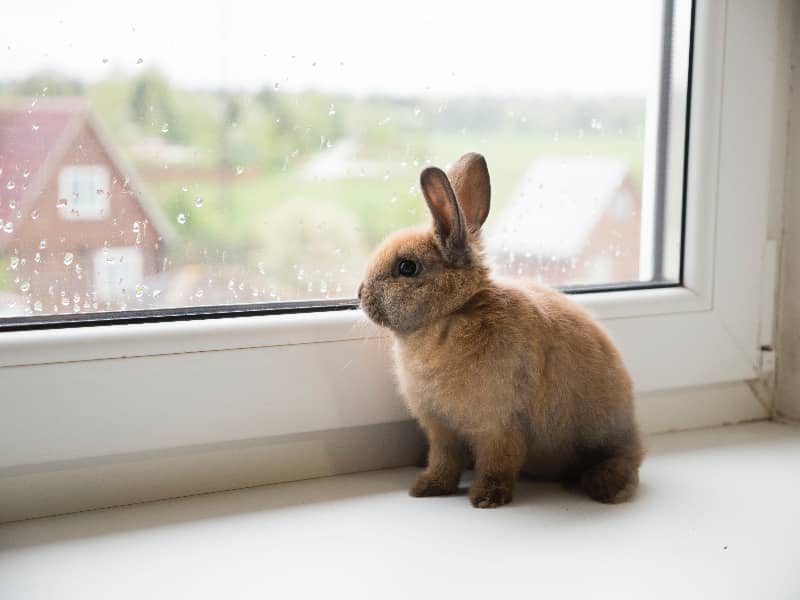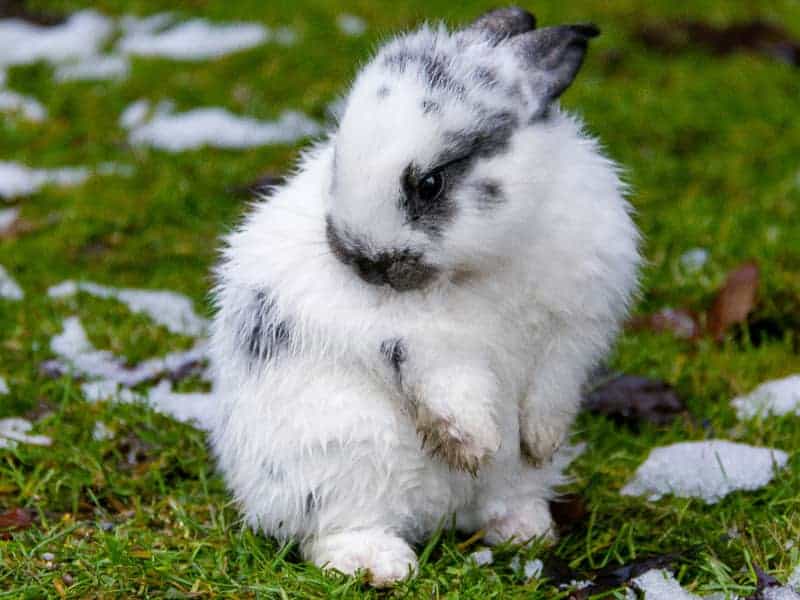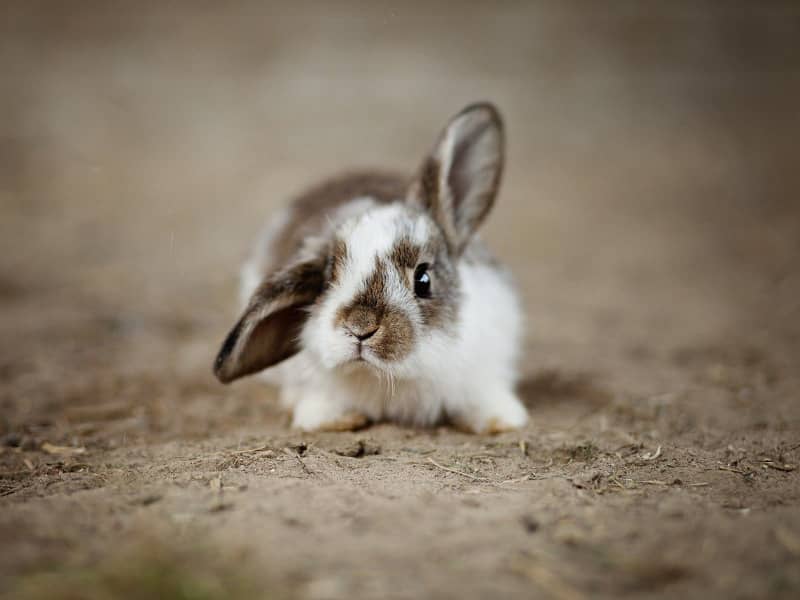
Neuter rabbits
For every responsible rabbit owner, neutering rabbits is part of keeping rabbits. Not that he has to do this himself, but that he makes sure that the rabbits do not multiply uncontrollably. Especially when not same-sex Siblings rabbits are kept, attention should be paid to this. Because there is a risk of inbreeding with offspring between siblings.
There is a valid reason why male rabbits are almost always neutered. It is a much smaller and more harmless procedure than for a female. The procedure is well tolerated by almost all males and is routine for veterinarians. Also, the cost of this procedure is much lower than neutering a female rabbit.
Early castration in the male
There are two types of castration, named according to age. One is early castration in the male dog, it is performed before sexual maturity occurs. Again, breed size is a determining factor in when early castration is performed. In smaller breeds, this is usually done at 11-12 weeks of age. In larger breeds between the 14th and 16th week.
However, it is also possible at any time to prefer castration primarily in larger breeds to avoid unwanted pregnancies to 100 %. The early and timely intervention ensures that no sex hormones are produced in the males. It also effectively prevents the aggressive behavior that some bucks exhibit during puberty.
Another advantage is that early castration does not require separation from the group. After the procedure, the animals can immediately rejoin their group and grow up normally. A male dog that is castrated only after sexual maturity can still be capable of procreation between three and five weeks and must therefore remain separated from the group.
Early castration an advantage?
We think yes, because the young rabbits usually recover from the surgery within a few days and are fully operational again. They can go back to their group and enjoy their rabbit life to the fullest.
Neutering rabbits after sexual maturity
Neutering a male rabbit can be performed as long as the rabbit is healthy and agile. Old age is not an obstacle, but we recommend a rabbit neutering as early as possible. There are many reasons for this, but the most important one is the hierarchy in the group. An old male rabbit that has a dominant position in a group will lose his rank in the group by neutering.
This loss of hierarchy can be a big problem for some male rabbits. They sometimes become "depressed" and withdraw. This is also understandable, because the major hormonal change that takes place in the rabbit should not be underestimated. A strong change in character can be observed in almost all male rabbits that are neutered late.
Late castration, what to consider?
As we mentioned above, the males that are neutered after sexual maturity remain capable of procreation for several weeks. Therefore a strict separation to all female rabbits is urgently necessary. The sperm that are still capable of procreation remain in the vas deferens and can accordingly still be expelled. How long the remaining sperm can really survive is not scientifically proven.
However, even after studying the literature, we do not know of any case where a rabbit from a neutered male rabbit became pregnant after four weeks. Due to the time-consuming process of neutering an old male rabbit, with the risk that he suffers psychologically, we strongly advocate that an early neutering should be performed on the male rabbits.
Advantages of neutering rabbits
A rabbit neutering has several advantages, the most important advantage is definitely that no unwanted pregnancies take place within the own rabbit husbandry. Because here there is always the danger that siblings multiply among themselves and an inbreeding is thereby promoted. Likewise, it is often difficult to give the young animals into trustworthy and good hands.
Then, if you want to socialize several males with each other, the castration is also an advantage. Because then there will be no fierce territorial fights, as it is the case with un-neutered animals. They are much easier to socialize and it is no problem that several males live together peacefully. Injuries, as they are otherwise normal in territorial fights, almost always remain completely absent.
Neuter rabbit cost
Of course, it is also important for a rabbit owner to know what costs he will incur when he has his rabbit neutered. The costs usually amount to 30-60 €, in rare cases also something. Here one can inform oneself however by a short telephone call with the veterinary surgeon in advance, which costs with him will result. Usually veterinary practices in the country are cheaper than in the city.
A distinction must be made between the costs of a normal castration and an early castration. As a rule, the early castrations are somewhat more expensive, because here the intervention is somewhat more complex. In the long run, the cost of neutering rabbits is much lower than constantly raising kittens and placing them in good hands.
The rabbit after castration
After your rabbit has successfully undergone the procedure and woken up from the anesthesia, you can take him home. But here you should pay attention to some things.
No litter in the stable
In the first days after the operation you should not put any bedding in the hutch. The neutered rabbit has an open wound and the litter can cause infections. As an alternative you can put towels or other materials. The toilet corner can be lined with paper towels to ensure hygienic conditions in the short term.
Late castration - observe separation period
If neutering has been performed on an adult male, then he must remain separated from his group for at least four weeks. This is the only way to avoid unwanted pregnancies.
Eating and drinking after neutering rabbits
Many male dogs are in a stressed and/or anxious state after neutering. Here you should stay with your animal and talk to it well and stroke it, so that it does not feel alone, because it will miss its group. You should make sure that your animal drinks enough and also starts to eat again after a short time. Feed him best with one of his favorite foods.
Nibbling on the wound
It is not uncommon for rabbits to start nibbling at the stitches on the wound. This must be avoided at all costs, otherwise the wound will take much longer to heal and infections can develop. In most cases, the vet will put a band-aid on the wound, but some rabbits like to remove it. If the plaster should be exchanged, then pay attention to the fact that it sits well and is not torn away again immediately.
If your rabbit does not tolerate the patch at all, then there is the possibility of a neck brace. This is the safest option to prevent the rabbit from working on the wound.
Neutering rabbits - follow-up examination
In consultation with the performing veterinarian, a control examination is arranged. At this time, the stitches are removed and a check is made to see if healing is proceeding properly. Some veterinarians also use stitches that dissolve by themselves, and a control examination becomes obsolete. However, if you notice reddened or inflamed areas, your pet can go to the doctor.
Author

-
Garden animal - A life with nature
Welcome to my animal blog! My name is Dirk and I am happy to take you on my journey through the fascinating world of animals and gardening.
Born 54 years ago, I have had an insatiable curiosity for the animal world around me since childhood. Although I have moved professionally in other industries, my true passion has always been animals and nature. It is remarkable how a small garden has become such an important part of my life.
Many of my fondest memories are associated with the animals that share our home. Whether it's the curious squirrels that scurry across the trees in the morning, the colorful variety of birds that visit our feeders, or the busy bees and butterflies that pollinate our flowers, every moment with them is invaluable to me.
This blog is my contribution to share my experiences, discoveries and insights with like-minded people. Here I will share stories of unforgettable encounters with animals, give tips on gardening and creating wildlife-friendly habitats, and take you on my journeys through nature.
Thank you so much for being here!
Cordial,
Dirk aka garden animal
Last posts
- 27. February 2024PetsVeganes Hundefutter – Grün und Gesund?
- 18. January 2024ChickensOregano für Hühner
- November 27, 2023HamsterDiurnal hamsters
- November 24, 2023HamsterHamster hammock

